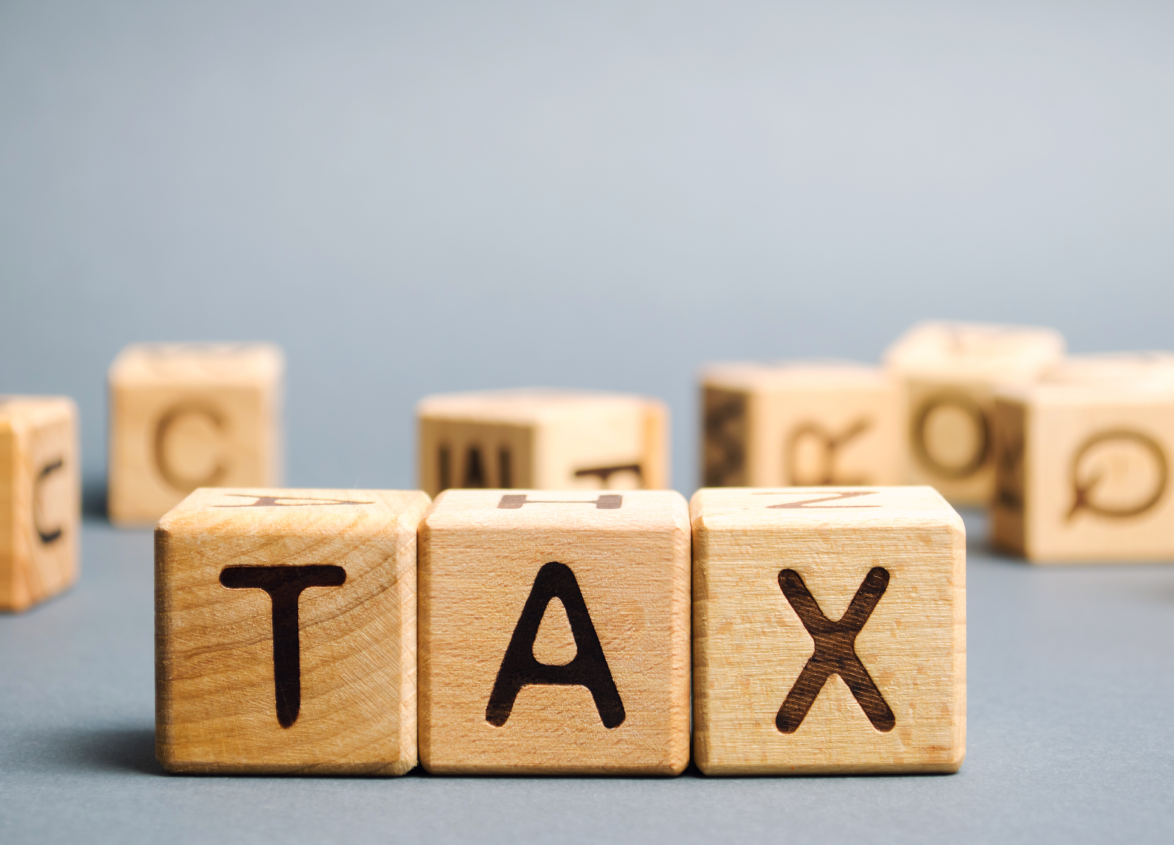
Residential
Power of Attorney for Property - Types, Meaning & Format
September 17, 2024
A power of attorney for property is essential for managing real estate transactions, especially when dealing with multiple responsibilities or when one cannot attend to these matters personally. Given its importance, it’s necessary to understand a power of attorney, its various types, specific uses, and implications. Let’s dive in.
What is the Power of Attorney for Property?
This is a legal document that grants an individual (the agent) the authority to act on behalf of another person (the principal) in matters related to property and finances. This document can allow:
- Buying
- Selling
- Leasing
- Managing real estate
- Handling financial accounts
- Paying bills
- Making investment decisions
It is instrumental when the principal is physically unavailable, incapacitated, or simply prefers to delegate these responsibilities to someone else. The principal (also known as the grantee) appoints an agent through a PoA to manage their property and financial matters efficiently and according to their wishes. He will define the extent of the agent’s authority in the PoA document.
Importance of Power of Attorney
Following are some key reasons why this legal document is essential:
Convenience
It allows the principal to delegate the management of their property and financial affairs to a trusted individual. It saves time and effort for individuals who frequently travel, live abroad, or have health issues that prevent them from managing their affairs personally.
Continuity
When the principal becomes incapacitated or otherwise unable to manage their property and finances, a PoA will continue them without interruption. This continuity maintains the principal’s financial stability and appropriately manages their property.
Flexibility
It can be tailored to specific needs, granting the agent either broad or limited authority. For instance, a PoA can be set to expire on a specific date or upon the completion of a particular task, such as selling a property. The flexibility and specificity of PoAs make them an essential tool in real estate and other legal matters.
Legal Protection
It provides a legal framework for the agent’s actions, ensuring that they act within the bounds of the authority granted by the principal. This legal protection is necessary for the principal as well as the agent. It clarifies the scope of the agent’s responsibilities and helps prevent disputes.
What are the types of Power of Attorney?
PoA documents come in various forms with different purposes. Depending on the degree of authority conferred, they can be:
Conventional or General Power of Attorney
It grants the agent broad powers to manage the principal’s property and financial affairs. This includes signing purchase agreements or lease agreements, selling real estate, handling bank accounts, managing investments, and making financial decisions. The general power of attorney is used when the principal needs someone to handle all aspects of their financial and property affairs.
Durable Power of Attorney
It remains effective even if the principal becomes incapacitated, ensuring that the agent can continue to manage the principal’s affairs without interruption. It is required for long-term planning and managing real estate and financial matters.
Springing Power of Attorney
It is a legal document active only under specific circumstances. These conditions could be a future date or a particular event, such as the grantor becoming unable to make decisions for themselves. For example, someone with a terminal illness might use this to appoint someone to manage their finances and healthcare if they fall into a coma.
Limited Power of Attorney
It grants the agent authority to perform specific tasks or transactions, such as selling a particular real property or managing a specific financial account. This type is ideal when the principal needs help with one particular matter but wants to refrain from granting broad authority.
Medical Power of Attorney
This document combines permanent and temporary elements. A medical PoA becomes valid for making healthcare or medical decisions. However, it only takes effect if the person granting the power (the grantor) cannot make decisions for themselves due to incapacity. In this situation, the appointed person (the agent) can handle tasks like paying medical bills. Notably, the agent cannot decide to terminate life support for the grantor, even in critical circumstances.
Understanding the different types of PoA is crucial for choosing the right one for your needs.
Components of Power of Attorney for Property
A PoA document should outline the roles, responsibilities, and limitations of the agent to make it legally binding. The main components of a PoA include:
1. Identification of the Principal and Agent
The document must identify both the principal and the agent. It includes their full names, addresses, and other identifying information, such as Aadhaar or passport numbers.
2. Scope of Authority
The PoA document should provide a detailed description of the powers granted to the agent. It should be related to property transactions, financial management, and other related activities. The principal can grant broad powers or limit the agent’s authority to particular tasks or decisions.
3. Duration of Authority
The document should specify the duration of the agent’s authority. It can be a fixed period, such as six months or one year, or it can be open-ended, remaining in effect until the principal revokes it or becomes incapacitated. In the case of a durable PoA, the document must explicitly state that the agent’s authority continues even if the principal becomes incapacitated.
4. Signatures and Witnesses
Both the principal and the agent must sign the PoA document. In many jurisdictions, the signatures must be notarized to ensure their legality. Some jurisdictions also require the presence of witnesses, who must also sign the document to attest to its authenticity. The witnesses should be impartial individuals who can attest to the validity of the document and the identities of the principal and agent.
Power of Attorney Format
Crafting the said document requires precision and legal accuracy.
Fortunately, various pre-made power of attorney forms and templates can guide individuals through this process. Sample formats provide helpful examples of how to structure these documents.
Here’s a sample format:
Sample Power of Attorney for Property
I, [Principal’s Full Name], residing at [Principal’s Address], hereby appoint [Agent's Full Name], residing at [Agent's Address], as my attorney-in-fact to manage my property and financial affairs.
Powers Granted:
- To buy, sell, lease, and manage real estate on my behalf.
- To handle my bank accounts, including deposits, withdrawals, and account management.
- To manage my investments, including buying and selling stocks, bonds, and other securities.
- To pay my bills and expenses using my funds.
- To make financial decisions and transactions on my behalf.
This Power of Attorney shall become effective on [Effective Date] and shall remain in effect until [Termination Condition].
This power of attorney shall not be affected by my subsequent disability or incapacity.
Signed on [Date]
[Principal's Signature]
[Agent's Signature]
[Witness 1 Signature]
[Witness 2 Signature]
Notarized by:
[Notary Public’s Signature and Seal]
The format depends on the jurisdiction and the specific requirements of the transaction. Click here to refer to a sample general power of attorney for property issued by the Government of Karnataka.
How to Create Power of Attorney for Property
This requires careful planning and execution.
Step 1: Defining the POA and Choosing an Agent
First, clearly outline the specific property-related actions you want the agent to handle, such as managing, selling, or leasing the property. Then, select a trustworthy individual who can effectively fulfill these responsibilities.
Step 2: Drafting the POA Document
Construct the POA document with transparent sections. Introduce the parties involved and explain the reason for the POA. Detail the agent's specific powers and responsibilities. Finally, establish the document’s validity period and termination conditions.
Step 3: Reviewing and Refining the POA
Thoroughly examine the draft to ensure it is precise and accurate and aligns with the grantor’s intentions. At this stage, correct any errors or ambiguities.
Step 4: Finalizing the POA
The completed POA must be signed by both the property owner and the agent. In some cases, witnesses and a notary public may also be required to validate the document.
How to choose an individual for the Power of Attorney?
Given its importance, appointing the right individual to function as your agent is a critical decision. Consider the following factors when choosing an agent:
- The agent should be over 18 years old and of sound mind.
- The agent must be someone who will act in your best interests and adhere to your wishes.
- The individual should be responsible, organized, and capable of handling assigned tasks.
- While not always necessary, choosing someone with experience in managing real estate or financial matters can be beneficial.
- Ensure the person you choose is available and willing to take on the responsibilities mentioned in the PoA.
How will an NRI execute a Power of Attorney?
Since they are far away, non-resident Indians (NRIs) often need to execute a PoA for property to manage their real estate affairs in India. While the final registration happens at the Sub-Registrar’s Office (SRO), the document must first be correctly prepared, signed, and notarized.
Suggested Read - 5 Reasons Why NRIs Should Invest in Real Estate in India
This involves specific procedures like using a Rs 100 stamp paper and having two lawyers and two unrelated witnesses present at the SRO. Given the complexities, consulting a legal expert is strongly recommended for detailed guidance.
How Can a Power of Attorney be Revoked?
Revoking a PoA is a straightforward process. Still, it must be done correctly to ensure that the agent no longer has legal authority to act on behalf of the principal.
The principal can revoke the PoA by:
Issuing a Revocation Document
A formal document stating the revocation of the PoA, including the effective date.
Notifying the Agent
Informing the agent in writing that the PoA has been revoked.
Notifying Third Parties
Informing any third parties, such as banks or real estate agencies, that the PoA has been revoked.
Recording the Revocation
In some cases, recording the revocation with the local registrar or other authorities may be necessary, especially if the PoA was registered.
Can a Power of Attorney holder sell the property to himself?
While there is no law against it, a PoA holder cannot sell the property to themselves using only the PoA. A PoA is merely an authorization for someone to act on another’s behalf. A registered sale deed is mandatory for property owners to transfer ownership to themselves. This deed requires the property owner’s direct involvement or authorized representative through a legally valid PoA expressly granting sale permissions.
Can one appoint multiple Power of Attorney?
Yes, appointing multiple agents is possible. It can be done for various reasons, such as dividing responsibilities or having a backup agent in case the primary agent is unavailable. When appointing multiple agents, the principal can specify whether they are to act jointly, independently, or sequentially. The principal should provide clear instructions to avoid confusion or disputes between the agents.
Stamp duty for Power of Attorney
The power of attorney costs, including stamp duty, depend on the jurisdiction and the nature of the powers granted. Stamp duty is a government tax levied on legal documents that are required to be legally enforceable. In India, power of attorney costs are calculated as follows:
- If a general PoA is granted to a close relative (such as parents, siblings, spouses, or children) without receiving anything in return:
- Stamp duty of Rs. 500
- Registration fee of Rs. 100
- If a general PoA is given to someone other than a close relative or something of value is exchanged:
- Stamp duty is calculated based on the property’s market value or the amount exchanged, whichever is higher.
- Registration fee is calculated at Rs. 10 per Rs. 1000 of the property’s market value or the amount exchanged, with a minimum fee of Rs. 100 and a maximum of Rs. 30,000.
Legal & Tax Implications of Power of Attorney
Granting someone PoA involves the legal and financial responsibilities of all the parties involved. The person given the authority, known as the attorney-in-fact, must act solely in the best interests of the grantor, handling their financial affairs with care and honesty. Misuse of this power can lead to legal issues. Clearly outline the attorney-in-fact authority in the POA document to prevent this.
Actions taken by the attorney-in-fact on behalf of the grantor, such as selling a property, can have tax consequences. Understanding these tax implications is important to avoid legal issues. The real estate agent appointed as attorney-in-fact should keep detailed records of all financial decisions and transactions. These records help ensure transparency and accountability, protecting both parties from disputes.
Conclusion
A PoA for property is indispensable in managing real estate transactions and related matters. Whether dealing with property sales, leases, or estate administration, a well-drafted PoA can provide peace of mind and ensure that your affairs are handled according to your wishes.
If you want to buy real estate in India, trust the Brigade Group. A leading name in Indian real estate, they exemplify the expertise and innovation that can be achieved in property development. Established in 1986, Brigade Group has shaped the skylines of major Indian cities with its exceptional residential, commercial, retail, hospitality, and educational projects. Its portfolio boasts over 280 delivered projects spanning 86 million square feet.
Some of Brigade Group’s most celebrated projects include Brigade Nebula, a luxurious residential project within the prestigious World Trade Center complex, and Orion Mall, a vibrant shopping destination. They have also delivered notable projects like Fairmont at Brigade Orchards, Brigade Insignia, World Trade Center, and Brigade Twin Towers, exemplifying their commitment to quality, design, and innovation. Brigade Group's success is a testament to the immense potential within the Indian real estate sector.
Frequently Asked Questions on Power of Attorney
Q: What is the function of a PoA?
A PoA allows an individual (the principal) to appoint another person (the agent or attorney-in-fact) to manage their affairs, including handling real estate transactions, financial matters, and other legal responsibilities.
Q: Which PoA is the most powerful?
The durable PoA is the most powerful because it remains in effect even if the principal becomes incapacitated, allowing the agent to continue managing the principal’s affairs without interruption.
Q: Is power of attorney valid after death?
No, a PoA becomes invalid upon the death of the principal. After death, the authority to manage the deceased’s estate typically passes to the executor named in the will or appointed by the court.
Q: Can power of attorney become the owner of the property?
An agent under a PoA for property does not become the owner. They only have the authority to manage or dispose of the property on behalf of the principal, according to the terms set out in the PoA document.
Q: How long is PoA valid in India?
In India, a PoA is valid for the duration specified in the document. If no duration is selected, it remains valid until it is revoked by the principal, the principal’s death, or, in the case of a durable PoA, the principal’s incapacitation.
MUST READ
Looking for something specific?
We'd be delighted to help you.




























































































































































































































































































































































































































